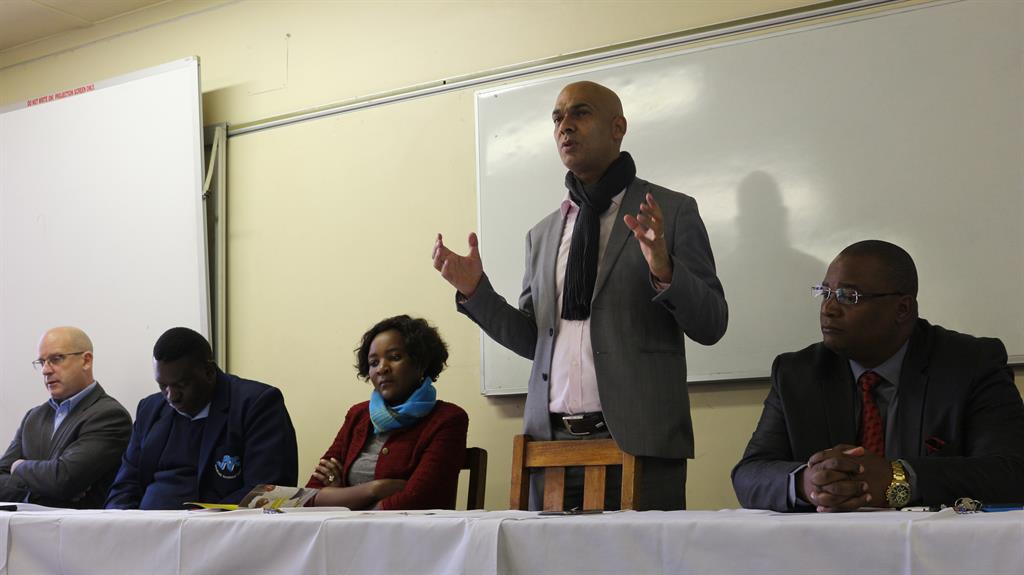TransNamib welcomes WVTC trainees
On Tuesday, 10 July TransNamib welcomed the first group of 62 trainees from the Windhoek Vocational Training Center (WVTC) studying in the technical fields of Auto Mechanics, Electronics, and Electrical General for with an additional 15 trainees Diesel Electric (DE) Fitter to be recruited as per the tripartite agreement between TransNamib, Namibia Training Authority (NTA) and WVTC.Vocational Education and Training (VET) is designed to prepare individuals for vocation or a specialised occupation and so is directly linked with Namibia's development, productivity and competitiveness.
Welcoming the trainees, TransNamib's Chief Executive Officer, Johny Smith, indicated that the trainees were joining the company at exciting times when the company is about to unpack a big skills development plan.
He also added that training and development of our people was one of the key priorities on his desk when he joined the company and encouraged the trainees to be openminded in order to craft a progressive career path.
This group will participate in the apprenticeship programme for three years whereby the theoretical component will be offered by WVTC and the practical component by TransNamib as part of the work integrated learning.
This arrangement is in line with the VTC's Competency Based Education and Training (CBET) where trainees are mentored and gain hands-on experience through on-the-job training. The project is funded by NTA to the tune of N$ 12 million.
Dalia Mwiya, NTA's senior research officer expressed her gratitude to WVTC as the training institution and TransNamib as the prospective employer for coming on board to kick- start the pilot programme.
“We know that TransNamib as a company that is well equipped and has already been committed to training, and we feel proud to see ourselves partnering with TransNamib, because we know we are going to learn a lot through the staff who have vast experiences,” she said.
Speaking at the same event, Webster Gonzo, executive: human capital remarked that skills development is a major issue in our country which is the responsibility of each and every individual.
“Therefore as a corporate, we feel it is important that we hold the hand of the government, to make sure that we do something about the lack of skills within the country,” he said.




Comments
My Zone
No comments have been left on this article